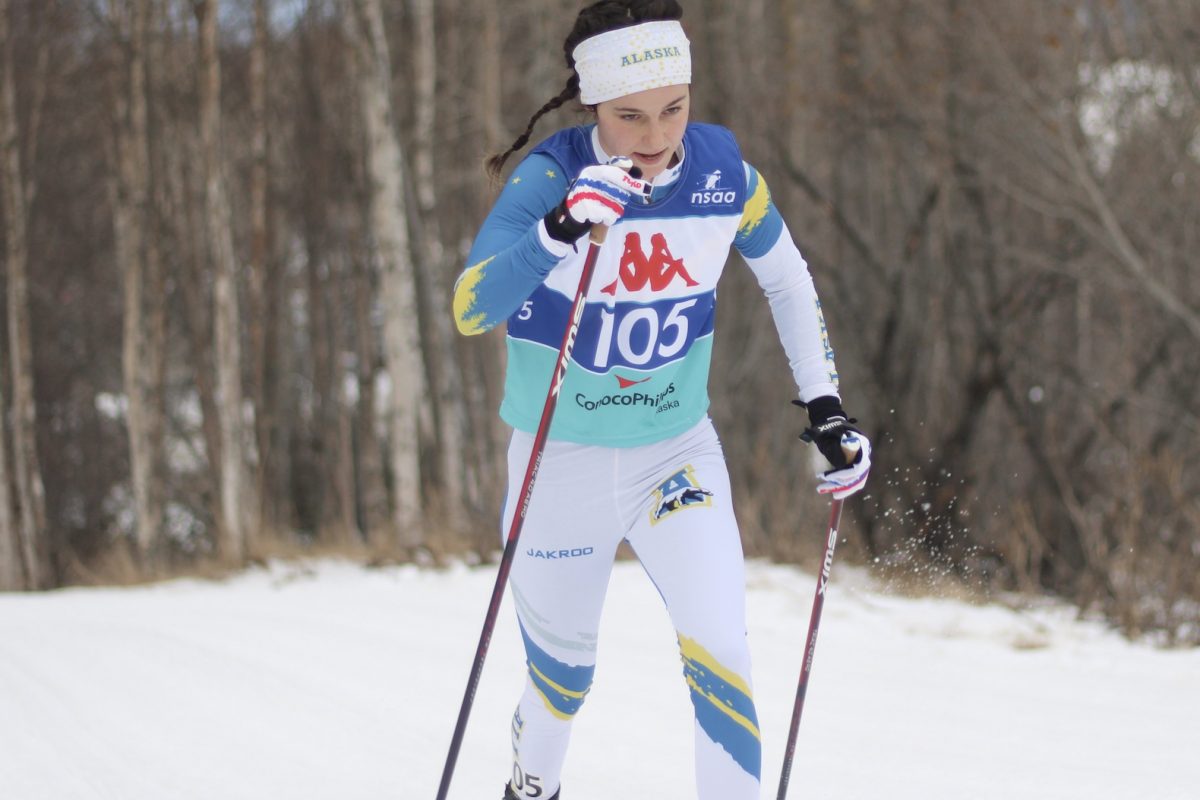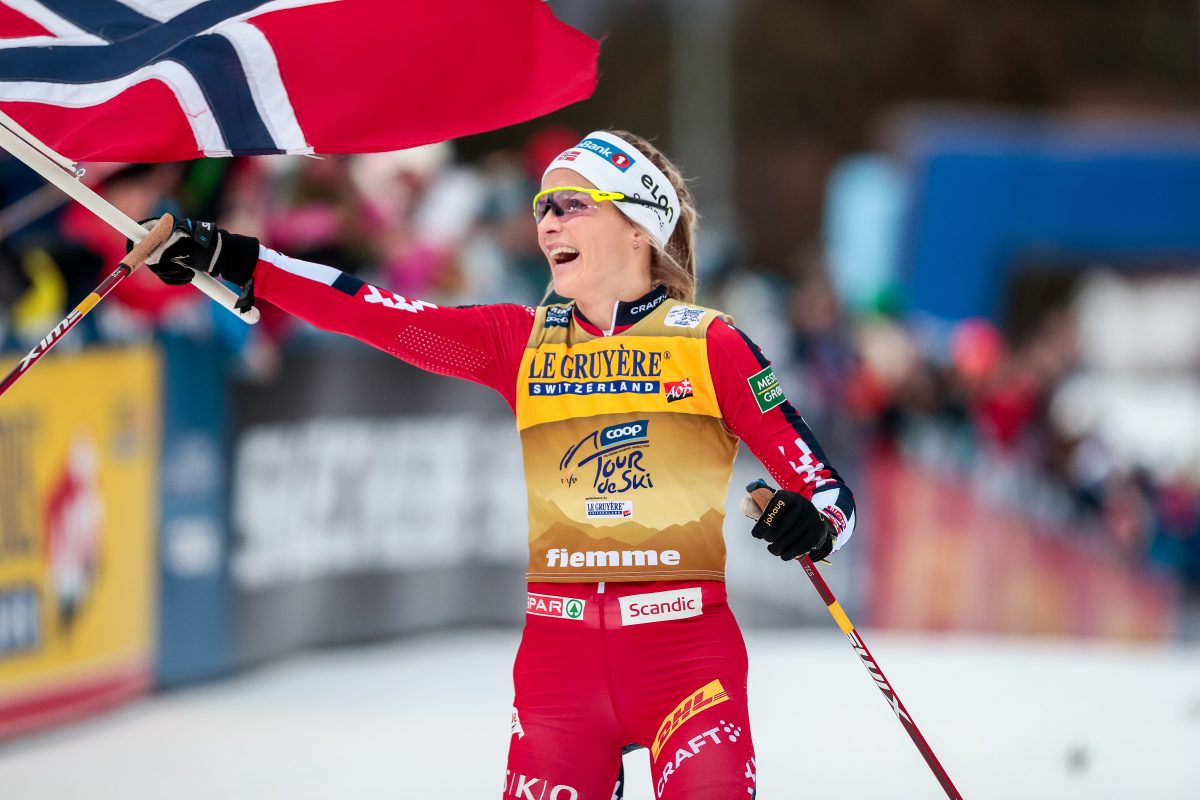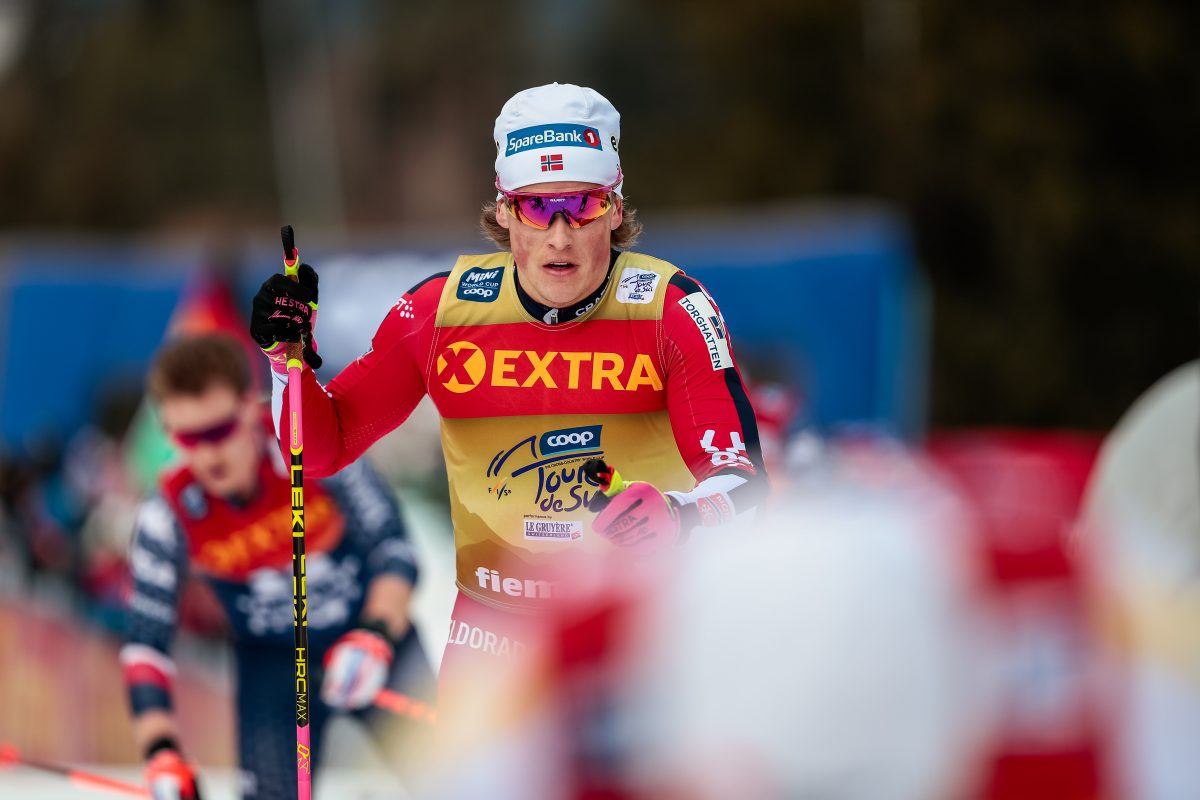
When you start skiing at 5 and stay in the game for 25 years, odds are you’re bound to experience injury. Two-time Olympian Drew Goldsack has seen his share of setbacks, including a serious foot injury that required surgery in 2009.
Seven or eight years ago, the Canadian Senior Development Team member said he crashed particularly hard on his mountain bike, hitting his head and blacking out on the spot. Goldsack eventually came to and realized he had a concussion, and while he felt fine, he never regained memory of several hours after the incident.
That crash aside, Goldsack’s tumble nearly three weeks ago in Whistler, British Columbia, was worse. In his second day back on the NorAm circuit after racing World Cups and battling sickness over the holidays, the 30-year-old was primed for the freestyle sprint. He put down the third-fastest qualifying team and rolled to the A-final, where all went well until the last stretch.
Coming off the final downhill in incredibly soft and snowy conditions, Goldsack felt another skier fall beside him. Before he knew what was happening, Goldsack said he cartwheeled several times and believed he landed on his back. His head smacked the ground and right shoulder jerked back under his body weight, and he suddenly sat up, dazed and confused. Looking down, he realized his favorite skis were ruined with one completely shattered above the binding.
“Some people in the stadium said they could actually hear the impact of me hitting the ground,” Goldsack said in a phone interview from Ottawa. “So not a typical cross-country crash, that’s for sure.”

Frustrated with the situation on the whole – Goldsack had been trying to win the sprint for a trip back to Europe – the sixth-place finisher carried on with his afternoon. He figured his adrenaline must have numbed the effects of the fall, the hardest one he had experienced in a ski race.
“It wasn’t until I got back to the hotel that I started feeling really tired and had a bad headache that I starting realizing how bad it was,” he said.
Doctors determined he had a mild concussion, and for a week, Goldsack stayed off his skis. On Wednesday, two days before he was set to resume racing at the NorAm mini tour in Cantley, Quebec, the Alberta native completed his first hard intensity workout since the crash.
It wasn’t long, but he felt good, and most importantly, showed no symptoms. Team doctors had closely monitored his recovery, making him scale back when he experienced dizzy spells to ensure he was 100 percent in training. Once in a while, Goldsack said he felt off balance and especially car sick, but it didn’t happen while skiing.
As far as he could tell, the only thing holding him back for the upcoming mini tour was his shoulder. After his headaches eased, Goldsack realized the severity of his shoulder injury. He had pulled his rotator cuff and likely bruised the cartilage around it.
“Of course I went skiing right away after the crash,” he said. “That’s been also part of the concern. Nothing’s torn so I’m going to tough that out.”
On Friday, the Rocky Mountain Racers skier will put his body to the test in the freestyle sprints at the Eastern Canadian Championships. After missing the Western Canadian Championships in Canmore, Alberta, Goldsack said he was mostly expecting a solid race effort.
“I’m hoping I can get in at least a good sprint,” he said. “It would be nice to start things off with a good race and a good result.”
Two months ago, Goldsack hit a career high, placing fifth in the team sprint with fellow Canadian Lenny Valjas in Düsseldorf, Germany. He returned home to Canmore almost immediately after and planned to race the NorAm opener at Sovereign Lake in British Columbia, but came down sick.
He spent two weeks recovering at the end of December and said it wasn’t a bad thing. Heading into the third set of NorAm races in Whistler, he was at full strength and hoping to make the Canadian OPA/Scandinavian Cup tours and contend for the NorAm sprint lead.

“It was a good opportunity to get back over to Europe for racing,” he said. “It’s crazy how fast things change.”
Driven to continue racing by numerous World Cup experiences, especially his most recent, Goldsack said it was becoming increasingly hard to deal with injuries, sicknesses and setbacks later in his career. Over the years, he faced a variety of obstacles, many of which were out of his control. They were always hard to take, he said.
“It’s tougher now because I feel like I’m coming to the end of my career,” he said. “It’s the question that you ask yourself, ‘How much longer do you keep going?’ At this point, I enjoy racing and still have the desire to train and race so see how things go. I’m used to dealing with adversity; as you get later in your career it gets harder to justify what you’re doing.”
So far, this season has proved particularly trying for Goldsack.
“It’s been a real rough season for me,” he said. “I don’t really know what to think of it because on one hand I’ve had a personal-best season on the World Cup and on the other it’s been a disaster.
“Things were getting better and heading in the right direction and this has been setback after setback,” he added. “A lot of it’s been soul searching. Every cliché in the book has been thrown my way from coaches and friends.”
A high-level racer for the last 12 years, he heard most of them before. Regardless, Goldsack hoped for a bright spot in the season or rebound of some sort. At the very least, he’d love to get his broken ski fixed. He sent a photo to Fischer to see if it could be salvaged and was waiting to hear back.
“That was almost the hardest thing to take,” Goldsack said of realizing the damage to his skis, which carried him to numerous NorAm podiums over the last four or five years. “[They were] the skis I wore in Düsseldorf and the skis I probably skied on 90 percent of the time so they’ll be tough to replace.”
Alex Kochon
Alex Kochon (alexkochon@gmail.com) is a former FasterSkier editor and roving reporter who never really lost touch with the nordic scene. A freelance writer, editor, and outdoor-loving mom of two, she lives in northeastern New York and enjoys adventuring in the Adirondacks. She shares her passion for sports and recreation as the co-founder of "Ride On! Mountain Bike Trail Guide" and a sales and content contributor at Curated.com. When she's not skiing or chasing her kids around, Alex assists authors as a production and marketing coordinator for iPub Global Connection.




One comment
sailguy
February 3, 2012 at 2:01 pm
This was one of the few occasions where you should be GLAD to break your favourite ski!
In a fall that nasty, something is going to break. It was a surprise to me that it was only a ski. For anyone who has watched mythbusters or remembers high school physics, take 75kg of skier and accelerate from 30kmh to zero in 2 metres and you have a huge conversion of kinetic energy into heat. Much better to fall on hard snow where you slide and convert that energy slowly.
I had an unfortunately good view of the crash as I was trying to read their bib numbers to be ready for what looked like an imminent photo finish. It was in the stadium just after the skiers break tuck and are still carrying speed from the descent. The two skiers tangled as the second skier started to move out of the draft and the first skier fell hard, stopping instantly in the soft snow. The second skier, Drew Goldsack, put one ski under the first skier on his way over. The second skier spun head first into the snow, partly flipping the first skier until the broken ski popped loose.
I thought the noise was the second skier’s tibia and fibula breaking over the first skier’s ribs, but it was probably just the topsheet being ripped from the ski.
To be honest, my first thought was both emerg doctors on site were volunteering at the finish line and we had no trained timers to replace them for the next round of sprint qualifiers. I was surprised that both skiers left the course unassisted.
The photo shows a moment when the first skier has gotten up to rejoin the race and the second skier has just moved. Just about the time I started breathing again….
So yeah, Drew, not a typical cross-country crash. But it did bring back memories of why I left alpine racing.